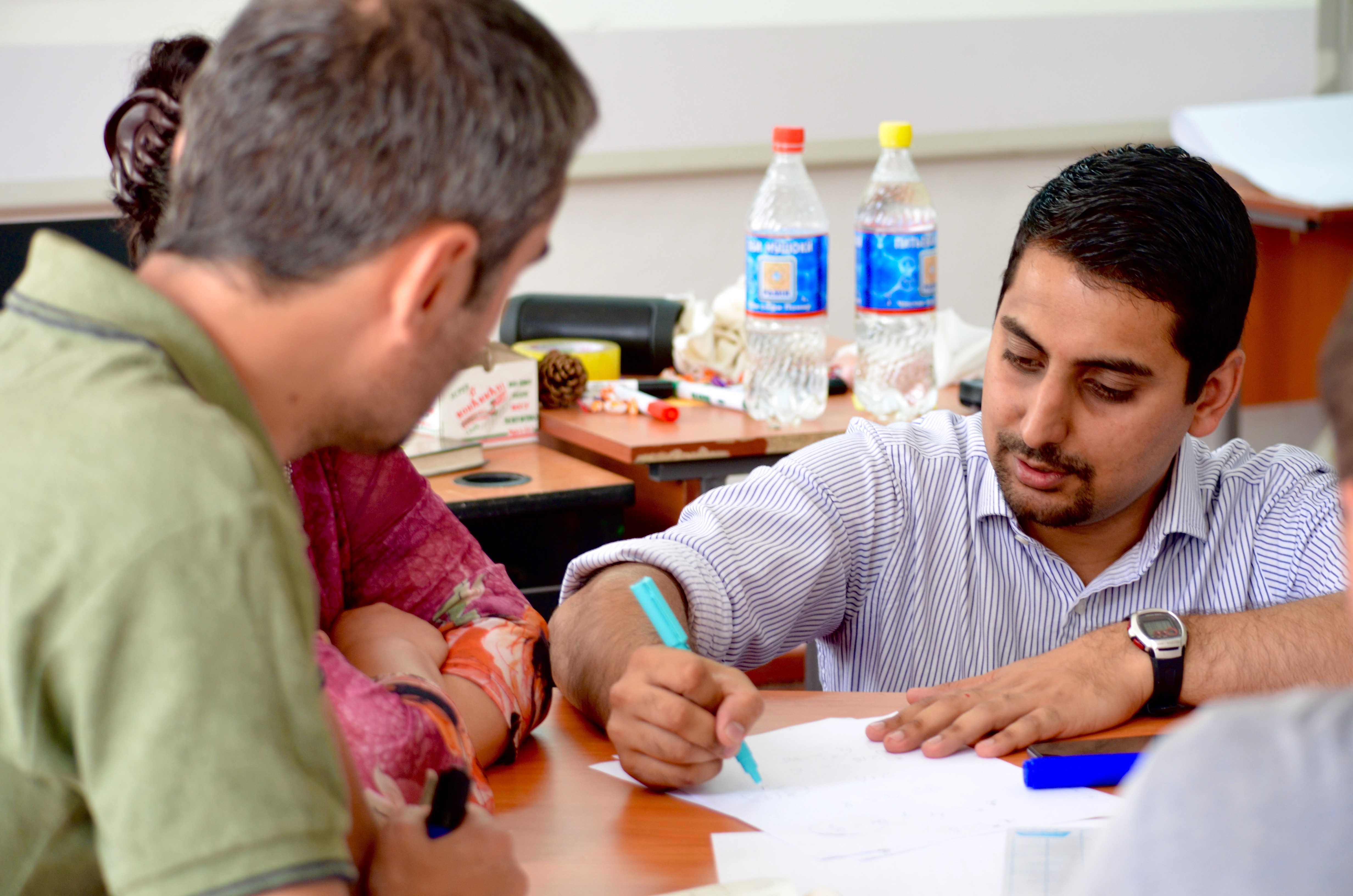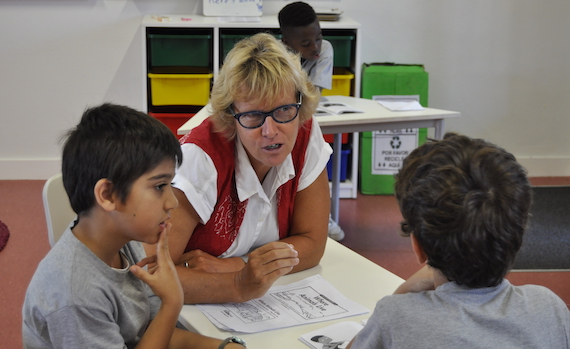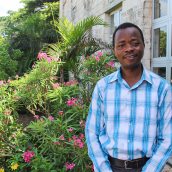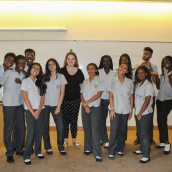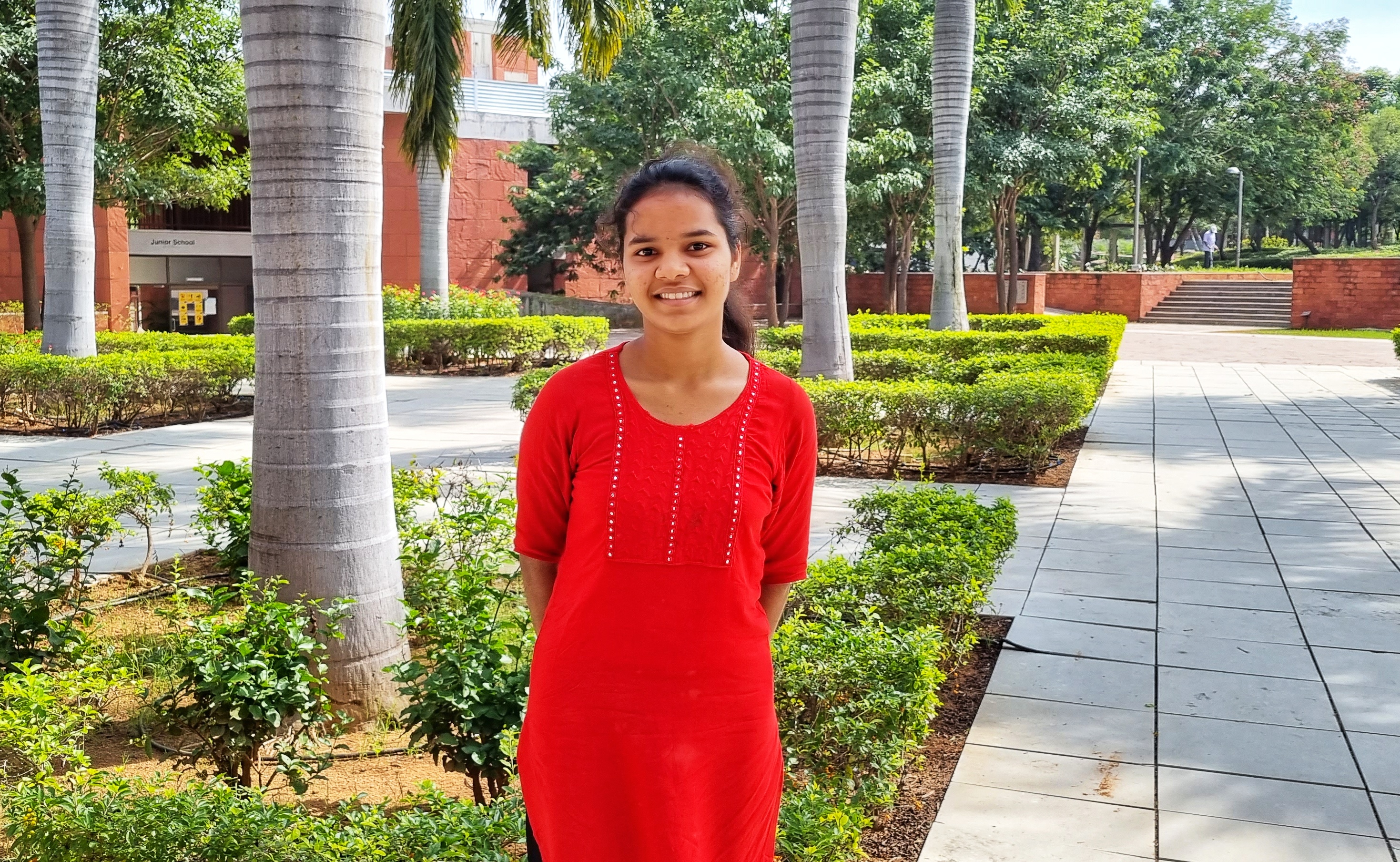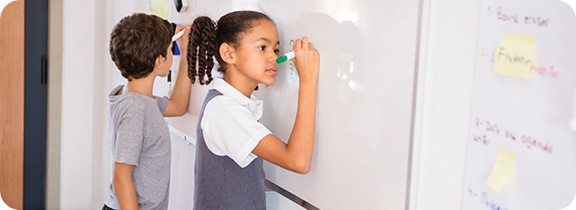
The AKA Learner Profile
The Aga Khan Academies (AKA) have developed a curriculum within the framework of the International Baccalaureate’s (IB) programmes. As such, the attributes of our learner profile are closely aligned to those of the IB learner profile.
Aga Khan Academies learners strive to be:
|
Inquirers |
We nurture our curiosity, developing skills for inquiry and research. We know how to learn independently and with others. We learn with enthusiasm and sustain our love of learning throughout life.
|
|
Knowledgeable
|
We develop and use conceptual understanding, exploring knowledge across a range of disciplines. We engage with issues and ideas that have local and global significance.
|
|
Thinkers |
We use critical and creative thinking skills to analyse and take responsible action on complex problems. We exercise initiative in making reasoned, ethical decisions.
|
|
Communicators
|
We express ourselves confidently and creatively in more than one language and in many ways. We collaborate effectively, listening carefully to the perspectives of other individuals and groups.
|
|
Principled
|
We act with integrity and honesty, with a strong sense of fairness and justice, and with respect for the dignity and rights of people everywhere. We take responsibility for our actions and their consequences.
|
|
Open-minded
|
We critically appreciate our own cultures and personal histories, as well as the values and traditions of others. We seek and evaluate a range of points of view, and we are willing to grow from the experience.
|
|
Caring
|
We show empathy, compassion and respect. We have a commitment to service, and we act to make a positive difference in the lives of others and in the world around us.
|
|
Courageous
|
We approach uncertainty with forethought and determination; we work independently and cooperatively to explore new ideas and innovative strategies. We are resourceful and resilient in the face of challenges and change.
|
|
Balanced |
We understand the importance of balancing different aspects of our lives – intellectual, physical, emotional and spiritual – to achieve well-being for ourselves and others. We recognise our interdependence with other people and with the world in which we live.
|
|
Reflective
|
We thoughtfully consider the world and our own ideas and experience. We work to understand our strengths and weaknesses in order to support our learning and personal development.
|
|
*Leaders |
We understand that multiple perspectives will allow us to make better decisions, and seek opportunities to work with a variety of others. We perceive and anticipate needs and problems, and are able to motivate ourselves and others to tackle problems, confidently and cooperatively.
|
|
*Stewards |
We understand the interconnectedness of communities, striving to create harmony in our environment, while considering the needs of all members. We are motivated to leave the world a better place.
|
© International Baccalaureate 2013
IB learner profile booklet
*Unique attributes of the Aga Khan Academies learner profile
Karim Ismail : Empowering teachers to nurture leaders
Joining the Academy virtually for the new academic year 2020 - 2021, our new Senior School Principal is excited to provide support to our teachers and collaborate with them in order to make as big an impact as possible as a group.
From his university days, Karim Ismail knew he wanted to work with young people and has not looked back since. Grateful for the experiences during his education, he felt compelled to share the love for learning amongst youngsters and recreate those experiences for students around the world.
“Understanding how I could ensure that other students get similar opportunities to build their character and personality made it an easy career decision,” he shared on his choice to become a teacher.
Hailing from the UK, Karim’s journey as a teacher and school leader has taken him all over the world including Kenya, Uganda, India, South Africa and Mozambique to name a few. He was working at an IB institution when he was recruited as one of the founding teachers of the Senior School at the Aga Khan Academy Hyderabad. Having worked for the Academies and other IB institutions in various leadership capacities, Karim now joins the AKA Maputo as the Senior School Principal.
Reflecting back when he held a similar role in Hyderabad, he said there are a number of reasons why it was special for him. “The time spent in Hyderabad not only gave me the opportunities to contribute towards student and teacher development but was developmental for me as a teacher and a leader as well. And I was proud to see through our first cohort of graduates in the Diploma Programme. I have very fond memories of my time in Hyderabad.”
Identifying the impact of education policy and the influence of change at a systemic level, Karim has experience in non-classroom based roles as well. He has worked with many schools in order to build on existing capacities to improve potential and has qualified to train teachers to become IB certified which is something he still does today.
“Taking the opportunity to step out of the classroom and partner with schools to focus on their institutional improvement was eye-opening. I have had the privilege of visiting excellent institutions and seeing their practices in place, and learning on each occasion. Meeting and training IB teachers from all corners of the world allows you to understand those educational contexts and their valuable diversity. Inevitably this work brought me back to working with the Aga Khan Academies.”
In his visits to the AKA Maputo, he has played an important role in understanding how to improve upon the quality of mathematics education, looking at changes in curriculum as well as their implementation. He brings this same analytical eye to the Senior School where he is excited to work full time with his new colleagues in Maputo. Having worked with the teachers in Maputo on various occasions, Karim lauds the teachers at the Academy for their strong set of core values which resonate with him; enabling him to provide support and encourage teachers in their mission to nurture leaders.
“Students have huge potential to become leaders. And our teachers, in my opinion, are the only way we're going to achieve that. They are the key drivers of change. They’re going to influence minds. They're going to be the relationship holders with that student body. And so my role is very much to give the teachers what they need, provide that space and encouragement, be that support and give them resources to allow them to do that job to the best of their capability.”
Praising the Academy for its quick and comprehensive response to the challenges posed by COVID-19, he found the quality of the online programme comparable to some of the best on offer with regards to its points of contact, rich content and technical tools deployed therein. While he agrees that the unique in person contact experience cannot be replicated, the Academy strives to achieve similar outcomes.
“If you have good relationships with your students, you can get the most out of them and they can work with you to identify their barriers, to push through their challenges and go through their good and bad days knowing that they have that support as a constant anchor for them in the classroom, virtual or otherwise.”
But there have also been a few silver linings through this unprecedented time. Karim points out that online learning has allowed students to develop their own skills in terms of organisation, their independence as a learner as well as their self-reliance and grit which will be hugely important moving forward.
Highlighting another boon in the transition to online learning, he finds that it, “facilitates the opportunity to provide intervention and support that cannot always be offered in a physical classroom, and this can lead to a better understanding of students’ needs, and positive impact on their progress.” He adds that this can be applicable to mathematics, language learning and other areas whereby the faculty are equipped to individualise instruction, provide feedback in a more direct way to students and in essence, help them bridge some of their prior gaps and misconceptions in a more efficient way.
Feeling honoured and privileged to be serving in his new role, he said, “I recognise this opportunity to really support the vision of what we're trying to do at the Academy. For our students, it's one of the most unorthodox experiences they have had educationally and in their lives. And I'm heartened and proud of the way in which I've seen people demonstrate grit and perseverance to get through this. That's going to make them stronger people.”
“And as we come back together as a physical school community in the future, I look forward to sharing those experiences, strengthening our Academy community, and appreciating the stimulation and freedom that comes with access to schooling. We have an incredibly exciting journey ahead.”
Maike Silver: Cultivating Young Minds to Truly Make a Difference
Ask Maike Silver, Junior School Principal at the Aga Khan Academy in Maputo, Mozambique, what attracted her to teach at the Academy.
“The vision and mission of the Academy,” she states simply. “The vision to inspire young people into becoming future leaders of their countries. To actually have the ethical persuasion to make a difference in the lives of their countrymen.”
Originally from Germany, Maike says it was her father’s voluntary work in her hometown that swayed her into the teaching profession. “I was 12 years old when I started helping my dad coach young swimmers at our local hometown club. Ever since then, I have wanted to work with children and young people.”
Starting her teaching career at a German-American International School in California as an Early Years Specialist, Maike worked for 17 years, before embarking on her international educator journey, first to Cebu, Philippines, and then onto Maputo, Mozambique. She started working at AKA Maputo in 2018.
While she applauds the International Baccalaureate (IB) framework the Academy uses to guide teaching and learning, Maike also values the Aga Khan Curricular Strands of ethics, pluralism, economics for development, cultures, governance, and civil society. These play an important role in her instruction.
“It is these added leadership and stewardship attributes that empower students to care for their communities and that also provide a concentrated focus on local issues,” she states with conviction.
One of Maike’s main goals is to create an environment in which learning can be a positive and transformative experience and make a meaningful impact on students. Aware that young people flourish academically and emotionally in a constructive environment, Maike goes to great lengths to demand discipline for behaviours that maintain reverence and a sense of community and family in which every student feels valued. She feels strong peer relationships are important as are mutual trust and respect between students and between students and teachers.
“In order to be a great teacher several factors need to be in place,” Maike says with authority. “The classroom environment needs to be one of mutual respect where teachers and students connect and together create expectations for behaviour that uphold dignity, and a sense of caring for each other and a passion for learning,” she states solemnly.
In her opinion, teaching is one of the hardest and yet one of the most rewarding professions. “Being a teacher is a difficult occupation as it requires a tremendous amount of energy to keep children engaged in their learning as well as show compassion for all categories of different learners. The job entails diplomacy and resilience when dealing with the different demands from parents, students and administrators.”
Aware of the importance of being prepared before teaching a class, Maike states emphatically that a teacher needs to plan activities and strategies with a strong sense of commitment in order to inspire students.
“The teacher needs to plan engaging activities that have a clear sense of purpose and where the outcome can be assessed. At the same time, the teacher needs to be responsive to the needs of students and must be flexible in their planning. This requires a teacher to be open-minded and reflective,” she notes.
If Maike carries a sense of manifest destiny for her students, she credits the Academy’s IB curriculum of a holistic education. Saying it is critical for educators to train students to think critically and creatively, and to be able to transfer their knowledge to real-life situations, she quotes Ernest LeRoy Boyer, who was a distinguished American educator, who once said “To be truly educated, a student must …make connections across the disciplines, discover ways to integrate subjects and ultimately relate what they learn to life."
Maike has savored every moment of being part of the AKA Maputo family. “I feel it is a tremendous honour and responsibility to be part of creating sustainable systems for a newly-developing Academy. I hope to leave behind a legacy of having been a kind, compassionate and effective leader who played an essential part in providing our young leaders of the future with the highest quality of education that prepares them to enact positive change in the world they inhabit.”
Written by Perviz Walji
Stephen Nyundo: Fostering students’ growth through Mathematics
Before we enter the 2019 – 2020 academic term, we would like to spotlight a few staff from AKA Mombasa who are going on to pursue new adventures in the upcoming academic year. Here, we take a look at Stephen Nyundo, a Mathematics teacher and head of the department, and his five years at the Academy.
Stephen Nyundo is from the Kenyan coast, specifically from a place called Kaloleni and was the head of department for the Mathematics department at the Aga Khan Academy Mombasa. Apart from the Mathematics department, Stephen was also the year level leader for year 9.
During his five years at the Academy, Stephen said he has admired the supportive relationships he’s made, which have helped him become a better teacher.
“My experience has been enriching and very rewarding at the Academy,” Stephen said. “I have interacted with friendly and accomodating people who did not look at my weaker side. People would tell me things would be fine, even when they actually appeared otherwise. I was supported in my early years in my professional growth and got an opportunity to learn all that I needed to learn. I will miss the family, friendship, strong ties and network I’ve built here. I will definitely miss the Friday treats.”
Stephen said the ethics and values instilled at the Academy not only influenced the students, but himself as well.
“The Academy has molded me to what I now am,” Stephen said. “I will carry with me the Academy values that I am sure will propel me to greatness.”
For the Mathematics department, Stephen said he has worked with students to develop methods on helping other students who might struggle with the subject.
“A good example is 'Euler Fulfillers', a YouTube initiative by two of my Mathematics HL students who came to me with the idea,” Stephen said. “After brainstorming, we thought this was the best move where Academy students can share with their fellow students in the Academy what they know best and also help others out with challenges in Mathematics. The other platform is the ‘MathMagic’, which brought together students from all of the classes to showcase how Mathematics is applied in real-life in the various units covered. The next platform we had planned to start working on was the 'Mathletics', which is a modified form of a treasure hunt. This is where talent is found; students make use of what they have learnt in the classroom to various situations in real-life.”
After his time at the Academy, Stephen said he is ready to pursue other teaching opportunities. However, Catherine Orwe, a Mathematics teacher who works with Stephen, said he will be dearly missed at the Academy by both students and his colleagues.
“Stephen has not been just a colleague for us, but a true friend and a person with a big heart,” Catherine said. “He always made time for all even when he had tight schedules to meet. He is always very positive even when the rest of the crowd was struggling with issues. He always worked very collaboratively with colleagues to achieve our departmental goals. He pleaded with members’ input by genuinely valuing others’ ideas and expertise, and he was always willing to learn from all of us. Yes, we have learnt so much from him. He is an amazing Mathematics teacher, and I know his students here will miss him. Stephen is a person that pays attention to details in everything that you do and he is the one who would point out the changes that we needed to make in our presentations both at table and the curriculum implementation. We will definitely miss having a wonderful friend like Stephen. Good luck to him in his future endeavors! We hope the new place he goes to is full of fun and happiness.”
Harriet Chadwick: Committed to students’ success
Before we enter the 2019 – 2020 academic term, we would like to spotlight a few staff from AKA Mombasa who are going on to pursue new adventures in the upcoming academic year. Here, we take a look at Harriet Chadwick, who worked in the Humanities department, and her time at the Academy.
Harriet Chadwick is from Wakefield in West Yorkshire, England and has worked at the Aga Khan Academy Mombasa for three years as a Global Politics, Integrated Humanities and Theory of Knowledge teacher.
During her time at the Academy, Harriet said she has had a positive experience in her professional and personal life.
“I have learnt a lot about my subject, the IB Diploma Programme and the Middle Years Programme,” Harriet said. “I have enjoyed living in Mombasa and learning more about the local history and culture. I have also enjoyed some of the supportive relationships I have had with colleagues and support staff.”
As she will move on to new opportunities, Harriet said she will miss many things about the Academy and Mombasa in general.
“I will miss the best students who I have ever worked with; they are kind, hardworking and charming,” Harriet said. “I have thoroughly enjoyed learning more about the African continent through the curriculum I have taught and developed in both DP and MYP. I will miss the beautiful, tropical sites of Mombasa, such as the palm trees and beaches, minus the sweaty weather.”
As a teacher at the Academy, Harriet said she was able to help students appreciate Humanities with different learning resources.
“In year 7 I have embedded more creative and interactive learning approaches into the curriculum and contributed new resources,” Harriet said. “I have upheld and improved the popularity of Global Politics across the Academy and supported students to achieve their potential in their assessments. Some of the new approaches I have embedded in my DP teaching are to encourage continuous self-reflection, openness and communication from students about problems they are facing, as I believe mentorship is a key ingredient of good teaching, and the importance of collaboration, as opposed to competition, as a way to succeed.”
Although Harriet was teaching the students on how to succeed in Humanities, she said the Academy was also teaching her on how to succeed and become a better teacher.
“The Academy has taught me how to have more confidence in myself as an educator, that teaching involves multiple roles that I have learnt to balance and how to deliver concept-based, rather than content-based learning,” Harriet said. “Moving to another IB school, I will also feel more equipped to deliver the IB programme and I am very grateful to the Academy for providing me with this opportunity to grow.”
Harriet said she will begin a new teaching position that will help her plan her future better. However, she will be dearly missed by her colleagues, according to Susan Abuto, the head of department for the Humanities department.
“Harriet is one of the most passionate teachers I have ever interacted with in all of my teaching life,” Susan said. “She has a strong commitment towards the students and the lessons she has to deliver. She takes a lot of time and consideration into the quality of work she produces, whether it is a write-up, an assessment, a lesson plan or even departmental duties. She works very well with minimal supervision. While observing her lessons, you can see the student engagement and enthusiasm in the lessons. She motivates students to strive for the best they can achieve. To her students she is a darling. She cares about their welfare - feelings, engagement, performance, association, among other things. We will miss this commitment in the department and I know her students will miss her too.”
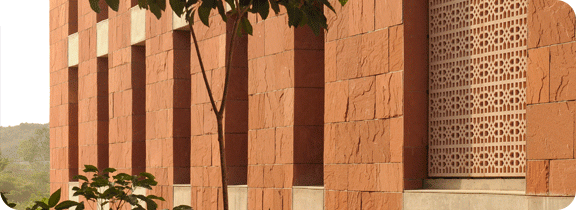
Quick Facts About the Academy
The Aga Khan Academy Hyderabad (established 2011)
Location: South of the city of Hyderabad, near the Rajiv Gandhi International Airport
Campus size: 100 acres of land allocated by the state government
Campus design and construction:
- total built area: approximately 500,000 square feet
- master facilities planners for the Academies: Sasaki Associates Inc. of Boston, USA
- campus design: award-winning architect Bimal Patel of HCP in Ahmedabad, India
- campus construction: Shahpoorji Pallonji
Curriculum
The Aga Khan Academy Hyderabad is an International Baccalaureate (IB) World School
IB programmes:
- Primary Years Programme: grades 1–5;
- Middle Years Programme: grades 6–10;
- Diploma Programme: grades 11–12
Aga Khan Curricular Strands, implemented across the curriculum:
Ethics, Pluralism, Cultures (with an emphasis on Muslim civlisations), Governance and Civil Society, and Economics for Development
Staff and students
Faculty numbers: 8 senior management, 63 Senior School faculty, 19 Junior School faculty, 7 working in both Senior & Junior Schools, 42 administrative staff
Number of students currently enrolled: 632 day and residential students in total: 140 day students in the Junior School; 492 students in the Senior School, with 245 in residence
Numbers of students and teachers at full capacity: 750 students and 90 teachers, with over 40% of students receiving some form of financial aid
First IB Diploma Programme graduating class: 2014
Residential students
Number of residential students: 245 currently, with full capacity of 300 students
Number of students per room: Between 2 and 4, with second year Diploma Programme students in single/double rooms
Residential facilities: Student lounge with multimedia and entertainment equipment, study areas, laundry facilities, dining hall
Campus facilities
Sports facilities: 25-metre swimming pool, diving pool, gym, two regulation-sized basketball courts, three cricket pitches with net practice facilities, two tennis courts, four squash courts, athletics track, junior play area, hockey field, training field, 2.5 km cross-country track
Arts facilities: Rooms for fine arts, music, dance; individual music practice booths; music recording area; amphitheatre performance space
Academic areas: Junior School classrooms, Senior School classrooms, science and computer laboratories, library and resource centre, arts facilities, music and dance studios
Residential buildings: 6 residential blocks: 3 male and 3 female; 6 dorm parent apartments in each block. Each block has a central atrium, lounge area, patio and laundry facilities.
Health and Wellness Centre: 12 beds and a full-time, qualified nurse
Professional Development Centre
The Aga Khan Academy Hyderabad is home to a Professional Development Centre for the advancement of teachers. The primary objective of this centre is to provide professional development that will benefit the wider school system in India.
Programming began in June 2010 with a Professional Learning for Educators Series for teachers in local government, independent and not-for profit schools.
The Aga Khan Academies network
18 Academies are planned in Africa, South and Central Asia, and the Middle East.
3 Academies are currently operating: Mombasa, Kenya (opened 2003); Hyderabad, India (opened 2011); and Maputo, Mozambique (opened 2013).
When complete, the network will represent 2,000 teachers and 14,000 students (boys and girls), with 1,400 graduates annually.
Institutional partnerships include:
Agencies of the Aga Khan Development Network; the International Baccalaureate, universities including the University of British Columbia, Concordia University, Ryerson University, University of California - Los Angeles, California State University - Northridge
Government partnerships include:
The Province of Ontario, Canada; the Ministry of Education, Science and Technology, Kenya; the Ministry of Education and Human Development, Mozambique; the French Development Agency (AFD); the French Mozambican Cultural Centre (CCFM - Centro Cultural Franco-Mozambicano); the Department of School Education, Telangana, India
Download the Quick Facts sheet here. ![]() AKA-Hyderabad-Quick-Facts.pdf
AKA-Hyderabad-Quick-Facts.pdf
Academic Calendar 2018-19
Click here to see the academic year planner for 2018-19 with term dates, holidays, exam & PTM dates.
